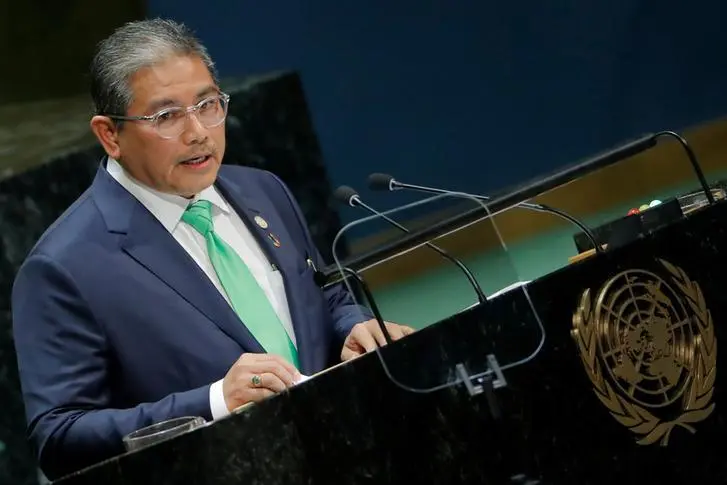PHOTO
JAKARTA - Foreign ministers from the Association of Southeast Asian Nations (ASEAN) have appointed Brunei's second minister for foreign affairs, Erywan Yusof, as special envoy to Myanmar, the group said on Wednesday.
Erywan has been tasked with ending violence in Myanmar, opening dialogue between the military rulers and their opponents in the crisis-torn country, according to a communique released after meetings on Monday and Wednesday by the bloc's foreign ministers.
The diplomat will also oversee a humanitarian aid package, although no details of the assistance were announced. Instead, the communique called for the ASEAN Coordinating Centre for Humanitarian Assistance to start work on "policy guidance".
Myanmar's military toppled a democratically elected government six months ago, plunging the country into turmoil as security forces suppressed protests and its economy collapsed. The humanitarian crisis worsened in the past month as coronavirus infections surged, overwhelming the health system.
The United Nations and many countries, including the United States and China, have urged ASEAN, whose 10 members include Myanmar, to spearhead diplomatic efforts to restore stability in Myanmar.
The appointment of an envoy was central to those efforts but was delayed for months amid deep divisions within the Southeast Asian bloc.
During a sometimes fractious foreign ministers meeting on Monday, Indonesia's foreign minister Retno Marsudi questioned the military regime's status in ASEAN as it baulked at Erywan's nomination, diplomats said.
Following further negotiations and Wednesday’s unscheduled meeting, the special envoy was confirmed.
Indonesia's foreign ministry said in a separate statement that the special envoy will start working soon and have "full access to all parties" in Myanmar. Many Myanmar opposition figures, including ousted leader Aung San Suu Kyi, are detained at home or in prison.
The military regime's representative at the meeting also resisted requests from ASEAN members to grant humanitarian workers freedom to deliver aid to areas they believed needed it most, said two sources familiar with the talks.
Critics have accused ASEAN of conferring legitimacy on Myanmar's junta by accepting its representatives at the group's meetings.
But the Indonesian statement highlighted subtle changes made to the wording in the joint communique so that it "cannot be seen as an acknowledgment of the military junta."
Myanmar's military government could not be immediately reached for comment.
On Sunday, the head of the junta, Min Aung Hlaing, announced he had been appointed prime minister and repeated a pledge to hold elections by 2023.
(Reporting by Tom Allard Editing by Ed Davies & Simon Cameron-Moore) ((Ed.Davies@thomsonreuters.com;))





















